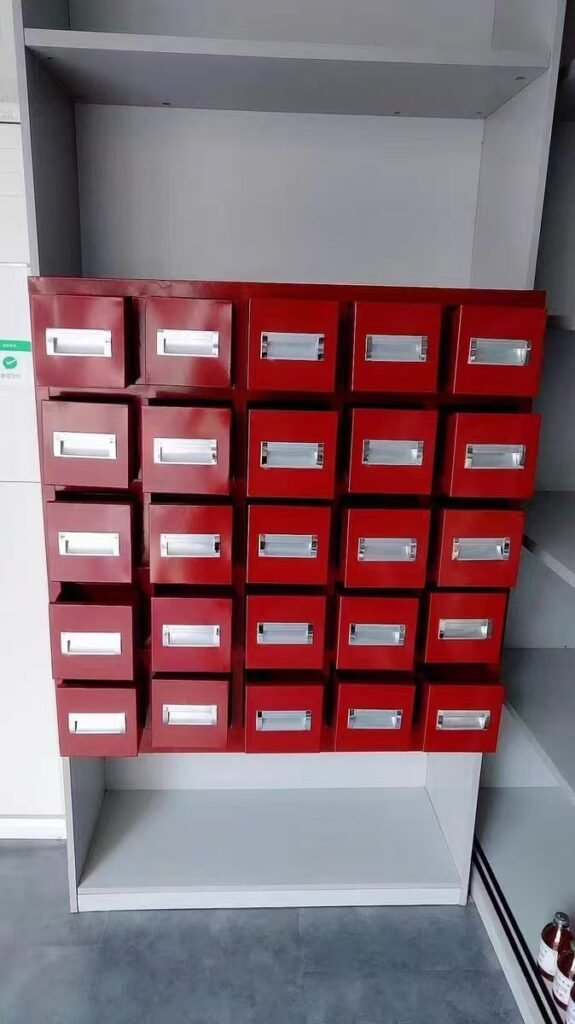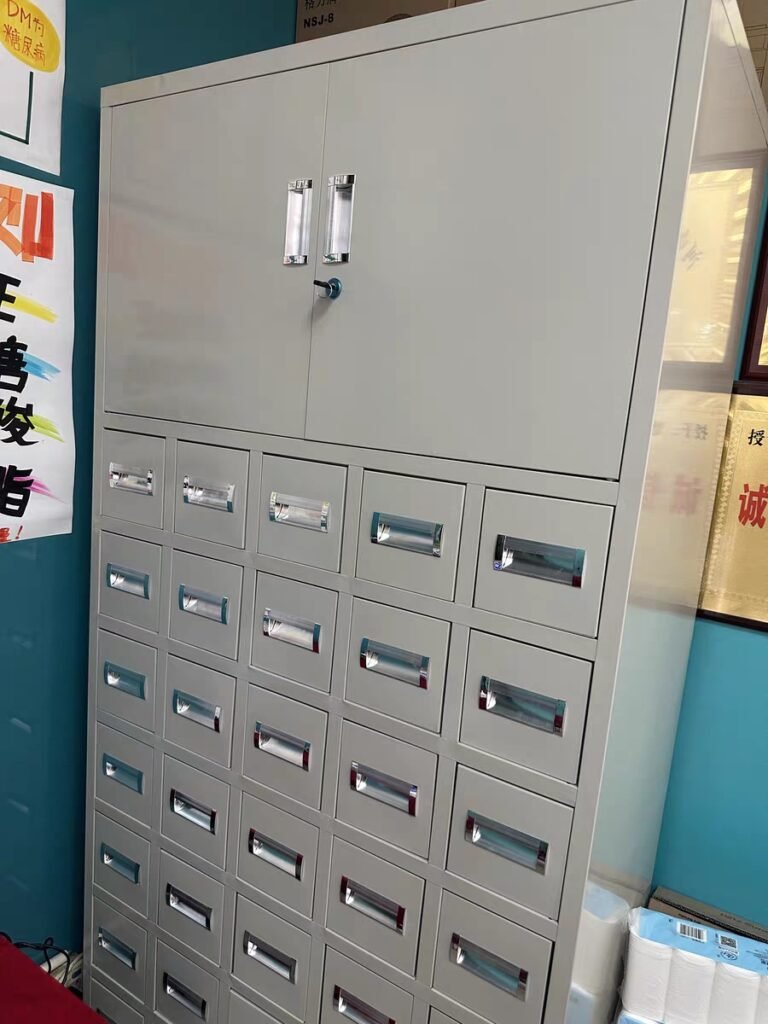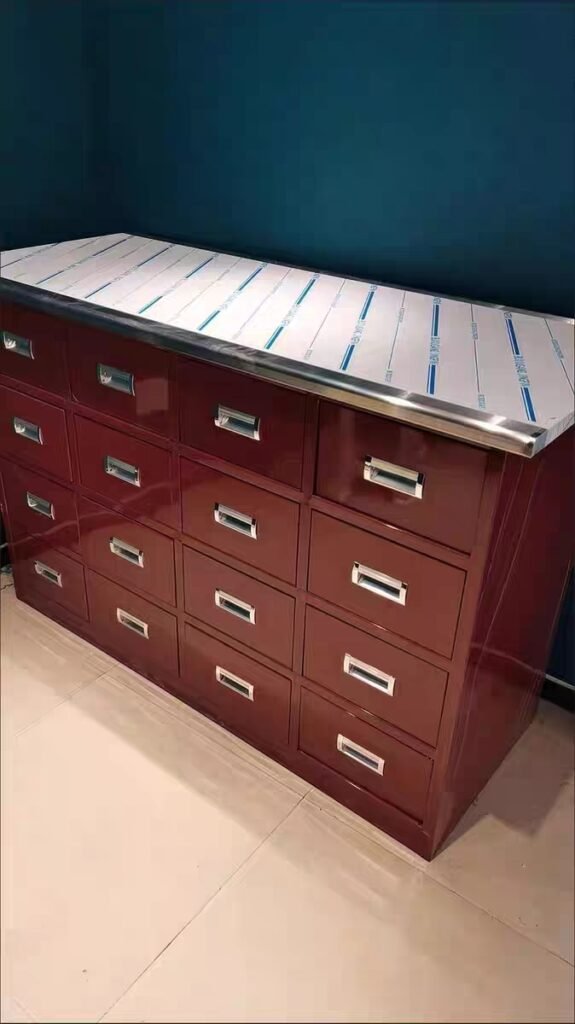Discovering Boston Chinatown’s Herbal Treasures: A Journey Through Traditional Medicine Cabinets
Walking Into History
Step into any traditional Chinese pharmacy in Boston Chinatown, and your eyes are immediately drawn to the walls lined with hundreds of small wooden drawers. These aren’t just ordinary storage units—they’re the heart and soul of traditional Chinese medicine, each drawer holding centuries of healing wisdom. As you wander through the narrow streets of this historic neighborhood, these drawer pharmacy cabinets stand as silent storytellers, preserving ancient knowledge in one of America’s oldest Chinese communities.

The Art of the Drawer Pharmacy Cabinet
Imagine standing before a towering wooden cabinet, its surface adorned with intricate Chinese characters. Each of the dozens of small drawers contains a different herb, root, or mineral used in traditional Chinese medicine. These cabinets, known as “yao gui” in Chinese, are masterpieces of functional art. In Boston’s herbal shops, you’ll find cabinets with anywhere from 60 to over 100 individual compartments, each carefully organized according to traditional principles.
What’s fascinating is how these cabinets reflect the systematic approach of Chinese medicine. Herbs aren’t randomly placed—they’re organized by their properties, the body systems they affect, or according to the five elements theory (wood, fire, earth, metal, water). This organization isn’t just practical; it’s a reflection of a holistic worldview that sees connections between all aspects of nature and human health.

Preserving Nature’s Pharmacy
Boston’s climate presents unique challenges for storing medicinal herbs. The humid summers and dry winters can affect the potency of delicate plant materials. That’s why Chinese herbal medicine storage cabinets in Boston Chinatown are specially designed to protect their precious contents.
Many of these cabinets are crafted from camphor wood, which naturally repels insects that might damage valuable herbs. Others use cedar or other aromatic woods that provide additional protection while contributing to the distinctive fragrance that fills traditional Chinese pharmacies. The cabinets often feature specialized ventilation systems that allow air circulation while preventing moisture buildup—essential for maintaining herb quality throughout New England’s changing seasons.
Small Cabinets, Big Impact
Space is at a premium in Boston’s urban landscape, and Chinatown is no exception. That’s why many shops feature small display Chinese medicine cabinets that serve multiple purposes. These compact units provide functional storage while doubling as educational tools for curious customers.
Walk into any herbal shop in Boston Chinatown, and you’ll likely see these smaller cabinets near the entrance. They often combine drawers with glass-fronted compartments, allowing visitors to see the actual herbs they’re learning about. The vibrant colors and textures of the herbs create an eye-catching display that invites questions and conversations. It’s not uncommon to see shop owners using these displays to teach customers about the properties and uses of different herbs, turning a simple storage solution into an interactive educational experience.

The Craftsmanship Behind the Cabinets
The creation of traditional Chinese medicine cabinets is a dying art, but in Boston Chinatown, you can still find examples of exquisite craftsmanship. These cabinets are built using traditional joinery techniques that don’t require nails or screws—just precise woodwork that has been perfected over generations.
Many cabinets feature decorative elements that tell their own stories. Intricate carvings of dragons, phoenixes, or other symbolic figures adorn the surfaces, each with its own meaning in Chinese culture. The labels on each drawer are works of art in themselves, carefully written in both Chinese characters and English, bridging cultural gaps and making the knowledge accessible to everyone.
More Than Just Storage
For the practitioners of traditional Chinese medicine in Boston, these cabinets are essential tools that enable them to continue their healing work. The organized drawer system allows them to quickly locate and combine specific herbs for custom formulations—a crucial aspect of traditional Chinese medicine where treatments are often personalized for each patient.
But these cabinets are more than just practical equipment. They’re cultural artifacts that connect Boston’s Chinese community to its heritage. In a city known for its medical innovation and world-class hospitals, these traditional cabinets represent a different but equally valuable approach to health and healing—one that has been refined over thousands of years.
A Living Tradition
Boston Chinatown’s traditional medicine cabinets are not museum pieces; they’re part of a living tradition that continues to evolve. Many practitioners are finding ways to blend traditional methods with modern innovations appropriate for the Boston market.
Some shops now feature cabinets with LED lighting to improve visibility in Boston’s historic buildings. Others have integrated digital inventory systems with their traditional drawer setups, combining the best of old and new. These adaptations show how traditional practices can remain relevant in a modern urban environment.
A Window into Chinese Culture
For visitors to Boston, Chinatown’s herbal pharmacies and their distinctive cabinets offer a unique window into Chinese culture and traditional medicine. The sight of hundreds of labeled drawers, each containing a different natural remedy, is a powerful reminder of the sophistication of traditional Chinese medical knowledge.
Many herbalists in Boston Chinatown are happy to share their knowledge with interested visitors, explaining the organization and purpose of their cabinets. These interactions turn functional storage units into bridges between cultures, fostering greater understanding and appreciation of traditional Chinese medicine.

Finding Boston’s Herbal Cabinets
If you’re interested in seeing these remarkable cabinets for yourself, Boston Chinatown offers several opportunities. The area around Tyler Street and Beach Street is home to several traditional Chinese pharmacies where you can observe these cabinets in action. Some shops welcome visitors and are happy to explain the basics of Chinese herbal medicine.
For a more structured experience, consider joining one of the cultural tours that occasionally visit traditional Chinese medicine practitioners in the area. These tours often include explanations of the cabinet organization and the principles behind traditional Chinese medicine.
The Future of Tradition
As Boston continues to evolve, so too does its Chinatown. The traditional medicine cabinets found throughout the neighborhood stand as symbols of cultural resilience and adaptation. They represent the ability of traditional practices to find relevance in contemporary settings, bridging ancient wisdom and modern urban life.
In a city that values both innovation and tradition, these cabinets serve as a reminder that the old and new can coexist harmoniously. They’re not just storage solutions—they’re repositories of knowledge, works of art, and symbols of cultural identity that continue to serve their community while sharing their wisdom with the broader Boston population.

Conclusion: Where Every Drawer Tells a Story
The next time you’re in Boston Chinatown, take a moment to appreciate the traditional medicine cabinets you see in the herbal shops. Each drawer holds not just herbs, but stories—stories of ancient healing practices, of cultural preservation, of adaptation to new environments, and of the ongoing dialogue between tradition and innovation.
These cabinets are more than just furniture; they’re the physical embodiment of a healing tradition that has traveled across oceans and centuries to find a home in Boston. In their careful organization and quiet dignity, they remind us that sometimes the most profound wisdom is stored not in books or computers, but in the simple, functional beauty of a well-crafted wooden drawer.
